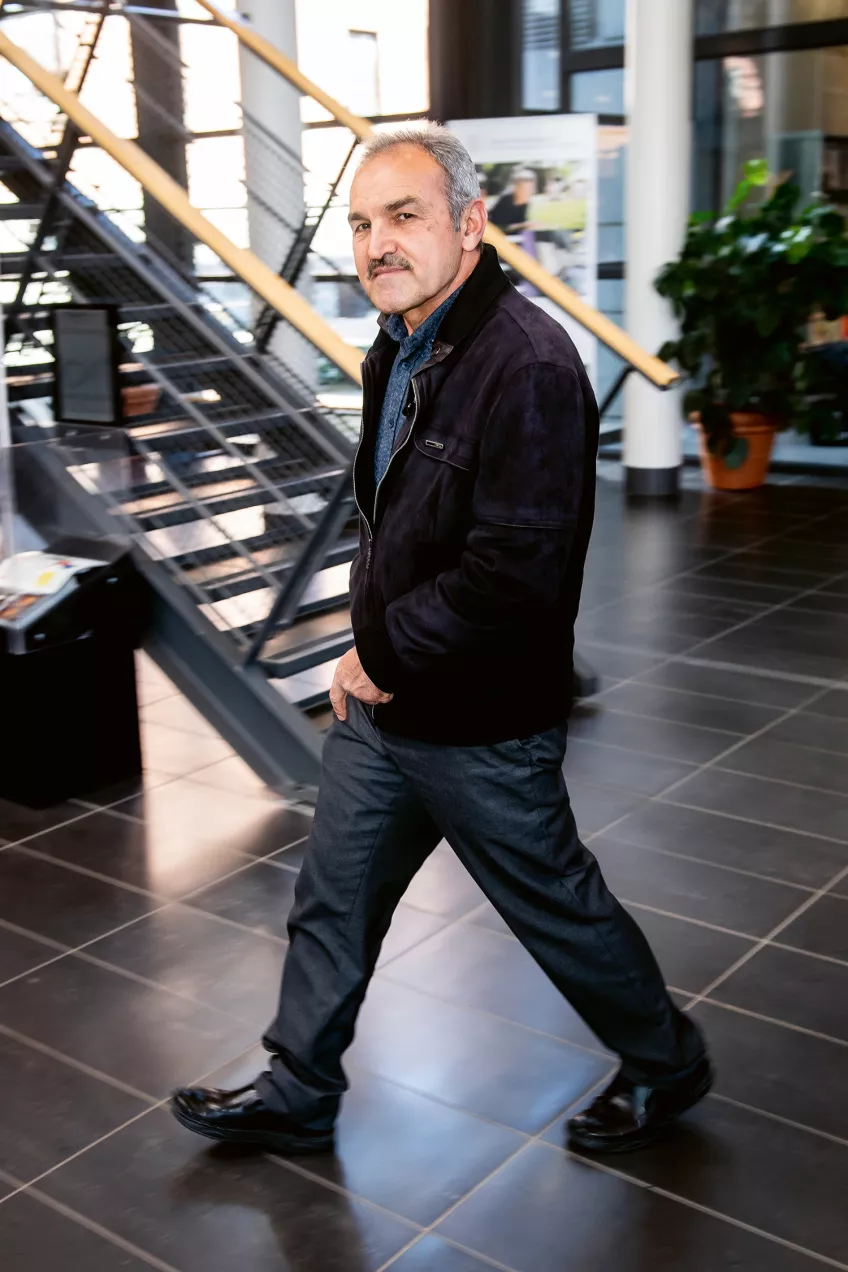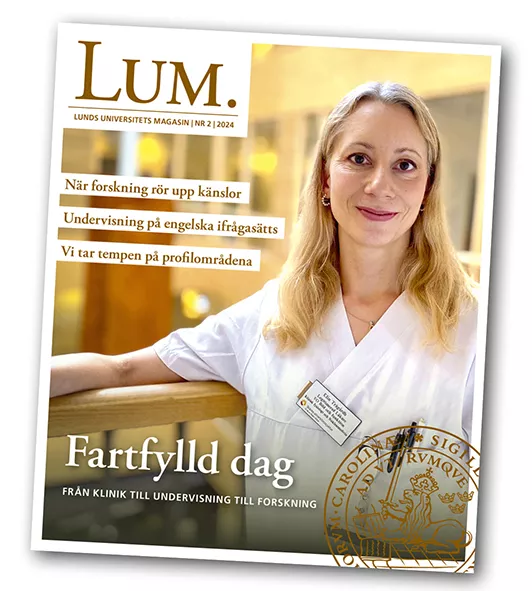On the Ebla Private University website, there is a photo of Moheiddin Homeidi in a suit, as the somewhat austere dean of the Faculty of Languages and Humanities. Next to the photo is a text about the role of translation in the understanding of both historical texts and what is happening around the world right now.
"I never would have left Syria if it were not for the war. I had it all. I was teaching a couple of hours per week, working on my research and I had a beautiful farm with space for the whole family", he says.
Moheiddin Homeidi is a professor of linguistics who came to Lund from Aleppo in Syria before the coronavirus pandemic through the network Scholars at Risk, SAR. The network works globally to find academic sanctuary for threatened researchers and to promote academic freedom, and LU has been a member since 2014.
"I bought this when I was a student at the University of Essex in the 1980s. I drove my car from my home in Syria all the way to England and then the same way back again after my studies with this map in my luggage. How the world has changed since then!"
He often refers back to the map, pointing out countries, cities and trips across continents.
Moheiddin Homeidi will be working here for one year, and he hopes to be able to continue working on seminars and research soon.
He heard about SAR via a colleague who travelled to Germany four years ago. Back then, he said he would never leave Syria.
"I thought the war would turn and come to an end."
A year or so later another two colleagues travelled to Germany via SAR. At the same time, he put in an application himself and faced problems immediately.
He needed to get to the embassy in Teheran to organise some documentation, but the border to Iran was closed and there was just one flight per week. In the end, they managed to work things out and Moheiddin Homeidi and his wife Fatema arrived in Lund two months after the planned start date. After carrying out a first seminar at SOL however, the coronavirus came along, and part of the work has been put on hold.
Following English studies at the university in Aleppo in the 1970s, the young Moheiddin Homeidi completed a Master's in linguistics followed by a PhD at the University of Essex in 1987. He then held positions at universities in Syria, Libya and Saudi Arabia. In 2011, he returned to Syria and Aleppo as assistant professor at the Ebla Private University as well as teaching Master's students in translation at the public university in Aleppo.
Currently, military forces control the university areas in Aleppo. Libraries have been destroyed and materials and books have been burnt or stolen. It is practically impossible for academics to work or carry out research.
"It is a disaster."
He has five adult children who live in Syria, Germany and Saudi Arabia.
"I tried to get them to study English like I did, but they chose to study Arabic and finance. As a parent, you cannot do any more than try", he says and laughs.
During his career, Moheiddin Homeidi has translated close to 30 books, and it is specifically translation that he hopes to work on in Lund. He is developing a course in Arabic for translators and a script that would facilitate translation between Swedish, Arabic and English.
One of his colleagues at SOL is Arthur Holmer, associate professor of general linguistics.
"As a matter of principle, I think it is very positive that our University is involved with SAR, it is a way to combine humanitarianism with a contribution to the University's research environment. And we are very happy to have been able to welcome Professor Moheiddin Homeidi, who we feel is a great asset", says Arthur Holmer.
He is hoping for increased knowledge of Arabic syntax in the research environment that works with the syntax of a number of different languages.




